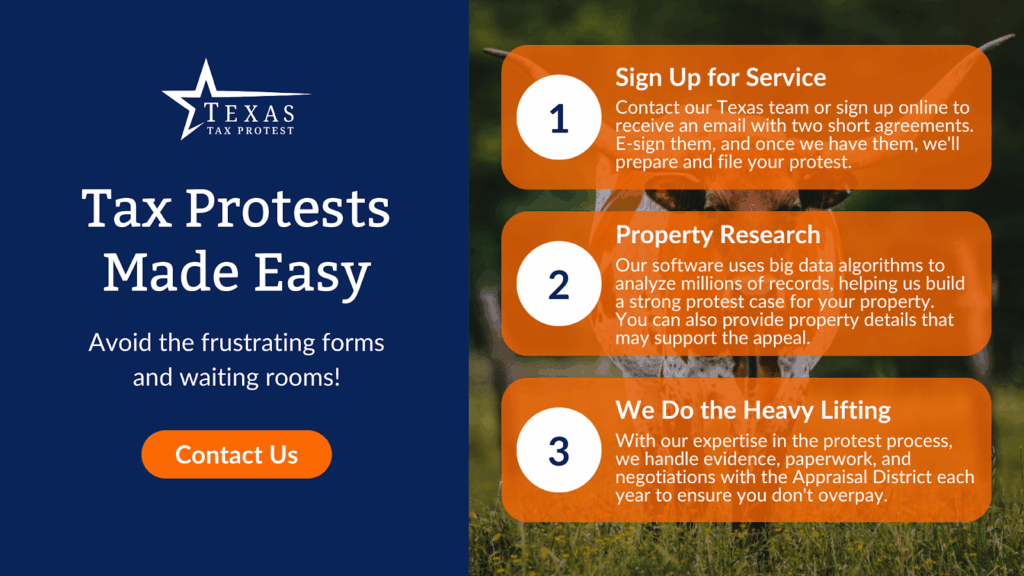Can An Assessor Come On My Property Without Permission? Know Your Rights
November 6, 2025

Key Takeaways:
- Legal Boundaries: Property assessors cannot enter your home or gated areas without permission under Texas law.
- Assessment Tools: Valuations are often made using aerial photos, comps, and public records when access is denied.
- Homeowner Rights: You have full legal rights to refuse entry and to protest inaccurate valuations based on flawed data.
Many Texas homeowners feel uneasy when someone from the appraisal district walks up to their property, clipboard in hand, possibly snapping photos or peeking over fences. It raises a serious question: can an assessor legally come onto your property without permission? Privacy concerns, property rights, and how these visits may affect your home’s value are all issues that deserve clarity. Understanding the limits of an assessor’s authority helps you make better decisions about protecting your property and responding to a potential overvaluation.
At Texas Tax Protest, we’ve helped Texans fight back against unfair property tax assessments for over a decade, saving property owners more than $85 million. Our research tools go beyond the basics, using big data and property-specific insights to give you an edge in the protest process. And when you need support, you’ll speak directly with a Texas-based expert, not a call center.
Understanding The Role Of A Property Assessor In Texas
In Texas, property assessors work for local appraisal districts to determine the taxable value of real estate. Their job is to estimate what your property would likely sell for in the current market, not to collect taxes or enforce codes. This valuation is used by local taxing entities to calculate your annual property tax bill.
In Tarrant County, for instance, this role is handled by the Tarrant Appraisal District (TAD). Assessors typically review recent sales of similar properties, neighborhood trends, and public records. While their aim is to produce fair valuations, it’s not uncommon for errors or outdated data to affect the assessed value, which is where your right to protest comes into play.

Can A Property Assessor Legally Enter Your Land Without Consent?
One of the most common concerns Texas property owners have is whether they must allow assessors onto their land. Understanding where your rights begin and where appraisal district authority ends is essential. Here’s what you need to know:
Your Right To Refuse Entry
In Texas, assessors do not have legal authority to enter private areas of your property without your permission. That includes fenced-in yards, garages, and of course, the interior of your home. You are within your rights to refuse entry, and doing so cannot legally be held against you in a protest or valuation challenge.
What Assessors Can Still Do Without Permission
Even if access is denied, appraisal districts often move forward with the valuation using available public data. Aerial imagery, prior year records, and comparable property sales can all play a role in how they estimate your home’s value. This is where mistakes frequently happen. At Texas Tax Protest, we specialize in identifying these kinds of errors and using data-backed analysis to help property owners challenge inflated valuations.
When Entry Might Be Requested
Entities like the Tarrant Appraisal District (TAD) may request a walk-through or exterior inspection if they believe significant changes have occurred, such as a new addition or a major renovation. These requests are typically informal and not legally binding. Property owners are encouraged to respond in writing or request documentation before allowing any access, especially if they feel uncomfortable or uncertain about the visit.
What Happens If You Deny Access To An Assessor?
Many Texas property owners choose to deny entry to assessors, and doing so is within their legal rights. However, it’s important to understand how this decision might affect your property valuation and what appraisal districts may do in response.
Denial Does Not Automatically Increase Your Value
Refusing entry does not give the appraisal district the authority to inflate your property value as a consequence. Texas law protects homeowners from retaliatory assessments based solely on access denial. Still, when assessors can’t verify changes or features firsthand, they may rely more heavily on older records or external assumptions.
Valuations May Be Based On Incomplete Or Incorrect Data
Without a direct look at the property, appraisal districts often use aerial images, building permits, or neighborhood comps to estimate value. While these tools are helpful, they don’t always reflect the true condition or size of your home. For instance, deferred maintenance or unfinished renovations might be overlooked, which could result in an inflated value. This is one of the key areas where working with professionals like Texas Tax Protest becomes valuable, as we analyze how those assumptions were made and whether they align with the reality of your property.
Tarrant Appraisal District (TAD) And Common Practices In Texas
Appraisal procedures can vary across Texas counties, but in Tarrant County, most property valuations are handled by the Tarrant Appraisal District (TAD). TAD is responsible for determining the market value of both residential and commercial properties within the county, using a combination of public data, market trends, and internal software models.
How TAD Gathers Property Information
TAD typically does not require access to the interior of a home to assign a value. Instead, it collects data through deed records, permits, historical photos, and recent comparable sales. For exterior changes, assessors may review aerial imagery or conduct a visual drive-by inspection to verify square footage, additions, or major structural changes.

Use Of Mass Appraisal Techniques
Like most Texas appraisal districts, TAD uses a mass appraisal approach. This means they evaluate groups of similar properties using formulas and market models rather than individual inspections. While this approach helps manage the scale of the tax system, it can lead to inaccuracies when unique property conditions are not factored in.
How Assessments Are Made Without Entering Your Property
Even if a property assessor never steps foot on your land, your home can still be valued using a range of data sources. Appraisal districts across Texas, including TAD, have access to extensive tools that help them estimate value without a physical inspection.
Use Of Aerial Imagery And Public Records
Assessors often rely on aerial and satellite imagery to identify structural changes like additions, detached garages, or pools. They may also check building permits and prior year appraisals to estimate property condition and layout. While these tools provide a baseline, they can easily miss key details that impact market value.
How Comparable Properties Are Adjusted
When an assessor uses sales of nearby homes to estimate your value, the properties selected may not match your home exactly. To account for these differences, mathematical adjustments are applied. For example, if a comparable home has a larger garage or upgraded kitchen, a percentage adjustment is made to reflect that difference in your valuation. This process is not always precise, which is why reviewing the comps used in your assessment is important if you plan to file a protest.
Your Rights As A Property Owner And How To Protect Them
As a Texas property owner, you have specific rights when it comes to property assessments, privacy, and the protest process. Understanding these rights can help you make informed decisions and protect yourself from inaccurate or unfair valuations.
You Are Not Required To Grant Entry
You are under no legal obligation to allow a property assessor inside your home or past locked gates. This applies whether or not the assessor requests access formally. If you choose to deny access, the appraisal district must rely on external data or prior records to complete the assessment.
You Have The Right To Challenge The Valuation
Every property owner in Texas has the legal right to protest their appraised value. If you believe your home was valued too high based on incorrect assumptions or flawed data, you can submit evidence to support a lower value. This might include photos, contractor estimates, or detailed comparisons to similar properties in your neighborhood.
Keep Documentation And Watch For Errors
It is a good practice to maintain records of any improvements, damage, or recent repairs made to your property. These documents can help clarify your property’s condition and prevent overvaluation. Errors in square footage, building features, or lot size are more common than most homeowners realize, and staying aware of these details puts you in a stronger position if you choose to protest.

Final Thoughts
You are not powerless in the property assessment process. In Texas, homeowners have the right to protect their privacy, question how their property was valued, and formally dispute any inaccuracies they find. While assessors can legally gather information from public sources, they cannot override your right to deny physical access to your home or private land.
If you believe your property was overvalued based on incomplete data or flawed comparisons, it is worth taking a closer look. At Texas Tax Protest, we use advanced data tools and deep knowledge of Texas appraisal districts to help homeowners identify valuation errors and file strong, evidence-based protests. Your home is one of your largest investments, and staying informed is the first step to protecting it from unnecessary tax burdens.
Read Also:
- Reassessment Explained: How It Affects Your Property Taxes
- What Triggers a Property Tax Reassessment (and How to Prepare for It)
- What Is a Property Tax Assessment? Breaking Down the Basics for Texas Homeowners
Frequently Asked Questions About Can An Assessor Come On My Property Without Permission
Can a property assessor take photos of my house without permission?
Yes, assessors are allowed to take photographs of your property from public areas such as sidewalks or streets. However, they cannot legally take photos from inside your home or behind fences without your consent.
Do I have to speak to a property assessor if they knock on my door?
No, you are not obligated to speak with them. It is entirely within your rights to decline a conversation or request that they contact you in writing instead.
Can I request identification from an assessor who approaches my property?
Yes, you can and should ask for official identification. Legitimate appraisal district staff should be able to provide a badge or district-issued ID upon request.
Are assessors allowed to use drones to inspect my property?
Currently, Texas law does not give local assessors specific authority to use drones for property inspections. If this occurs, it may violate state privacy laws.
Is it legal for assessors to speak with my neighbors about my property?
While rare, assessors may try to gather context about a property. However, most appraisals are done using public records and data, not third-party opinions.
Can refusing access delay my property’s assessment?
No, the district will still complete your assessment using available data. Your refusal may limit accuracy but does not halt the process.
Can I request a copy of the data used to assess my property?
Yes, property owners can request the information used in their valuation. This includes comparable sales, property descriptions, and valuation methods.
Do assessors consider landscaping or curb appeal when valuing a home?
Generally, no. Landscaping is not a major factor unless it significantly alters the property’s overall marketability, such as high-end features like outdoor kitchens.
Can an assessment change if a property is vacant or unoccupied?
Vacancy alone does not lower a property’s assessed value. However, if the condition of the home has deteriorated, that may affect the valuation.
Will I be notified before an assessor visits my property?
Not always. In many cases, property owners are not given prior notice, especially if the inspection is limited to public view or a drive-by review.











